Films
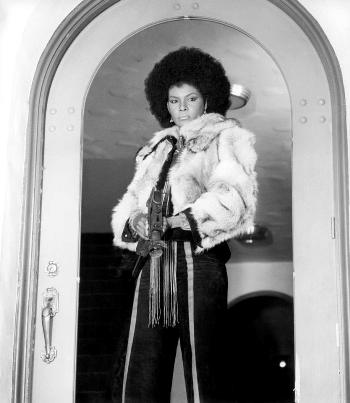
4 Great talks coming up !
- Friday 24 May, Sexualised Violence
- Saturday 15 June, Urban Music: Society and Religion
- Friday 28 June, African Women Reistance Leaders
- Saturday 29 June, The Impact of Hip Hop on White masculinities
Sexualised Violence and the USA Black Freedom Movement with Dr Althea-Legal Miller
Friday 24 May 6.30pm to 9.00pm. This event will start at 6.30pm, latecomers will miss out and may not get a seat
Admission free if booked via eventbrite http://sexviolenceandcivilrights-es2.eventbrite.co.uk/?rank=2#. Donations accepted on the day
Queen Nzinga was an African Queen who fought against the European invasion of southern Africa (Congo/Angola). The Queen Nzinga lecture series will feature African female academics / holders of expert knowledge, speaking on topics of their choice on a monthly basis. The Nzinga lecture series will provide a regular platform for women of African descent to highlight important issues in an academic setting. As a result of these lectures a Black Women in Academia Support Group has been set up. Dr Michelle Asantewa will present an update on the group on the 24th May
See previous Queen Nzingha lectures here
https://www.youtube.com/blackhistorywalks
Sexualised Violence and the USA Black Freedom Movement
Violence against protesters during the 1960s African American freedom movement has been popularly characterised by scenes of fire hoses, dogs, club wielding law enforcers, and vicious white mobs. Yet the suppression of civil rights struggles was also sexualized.
The heroic missives of male leaders, such as Martin Luther King’s letter from a Birmingham jail have popularly shaped how we view jail and the experience of imprisonment for civil disobedience in 1960s America. But as thousands of predominately young African Americans – who in some regions were disproportionally made up of adolescent black girls – committed to arrest and imprisonment during the movement, police officers and jailers attempted to undermine their sexual rights and the goals of the black freedom struggle through racialized sexual violence. In her presentation ‘Sexualized Violence and the American Black Freedom Movement’ Researcher and freelance writer, Dr Althea Legal-Miller will argue that the semi-occluded space of the jail left female civil rights workers particularly vulnerable to an innumerable repertoire of sexualized oppressions from white male law-enforcers, which included sexual comments and threats, sexual intimidation, voyeurism, strippings, sexualized beatings, abuse of search authority, molestations, and rape.
This presentation will illuminate little-known narratives of female imprisonment, and importantly, resistance during the mass incarcerations of the early 1960s. Additionally, the presentation will illuminate how the politicised environment of the 1960s empowered young women and girls to break with general proscriptions against speaking about sexuality. Crucially, young women and girls understood that respectable silences around sexual discourse did not foreclose bold denunciations of sexualized violence, and in turn they began to courageously overthrow sexual taboos and use their testimonies as powerful political weapons against white male supremacy.
'Urban' Music, Society and Religion: Connecting the dots
Saturday 15 June 7.30pm to 9.00pm. This event will start at 7.30pm, latecomers will miss out and may not get a seat
Admission free if booked via eventbrite http://www.eventbrite.co.uk/event/6796385171/es2/?rank=1#. Donations accepted on the day

Queen Nzingha Lecture (7) 'Urban' Music, Society and Religion Connecting the Dots
Hallowed be thy Grime? : A musicological and sociological genealogy of Grime music and its relation to black Atlantic religious discourse’
In the 90's we had jungle whereas now Dizzy Rascal, Tinie Tempah,Tinchy Strider, Scorcher. Dot Rotten and other young black musicianss have infiltrated the Top Ten with whats' called 'Grime' . What is Grime ? Is it still black music ? Do teenagers see any black history in the beats, is there any ? How is Grime connected to religion and the concept of the African cultural transmission across the Atlantic over the last 500 years ? Where's the black history in black British youth culture ?
This presentation by Phd candidate Monique Charles will explore ancient and modern music & its characteristics, the sociology of religion and how these are applied in the African diaspora to extrapolate religious meaning and emotion in a concert setting

African Women Resistance Leaders. (UK 1970's/80's)
Friday 28 June 6.30pm to 9.00pm. This event will start at 6.30pm, latecomers will miss out and may not get a seat.Admission free if booked via eventbrite http://africanwomenresistanceleaders-es2.eventbrite.co.uk/?rank=4#
(Part of Black Power Sisters Weekend). In preparation for the Angela Davis film premiere on the 29 June, we present visual biographical details of black women from the UK and around the world who have resisted colonialism and racism . Women do not get the historical credit they deserve and quite often there is a focus on African Americans to the exclusion of local heroes. This event will give the audience video and documentary evidence of the who, what and why of 30 female fighters who used guns, pens or placards to fight for equallity in modern Britain. Bring notepad and pen and be on time, latecomers will end up standing . Women include: Queen Nzinga, Dora Akunyili, Dame Jocelyn Barrow, Olive Morris, Una Marson, Edna Ismail, Lieutentant Sanite Belair, Althea Gibson, Mavis Best, Fawzia Hashim, Dr Beryl Gilroy, Leyla Hussein,Gerlin Bean, Althea Lecointe, Stella Dadzie, Dr Patrica Bath, Professor Elizabeth Anionwu and many more
See our other exciting events at www.blackhistorywalks.co.uk )

The Impact of Hip Hop on White Masculinities
Saturday 29 June 6.30pm to 9.00pm. This event will start at 6.30pm, latecomers will miss out and may not get a seat
Admission free if booked via eventbritehttp://impactofhiphoponwhitemen-es2.eventbrite.co.uk/?rank=3# . Donations accepted on the day
In the 1970's Hip Hop music represented the voice of black American youth in regards to racism, oppression, poverty and black urban life experiences. It also gave black youth a platform to address and celebrate black history, challenge dominant mainstream thinking and encourge a sense of empowerment. However, fast forward to today and hip hop has become one of the most popular global music genres, racking in millions of pounds from an abundance of young fans, including young white boys wearing hip hop inspired clothing, using hip hop slang,spitting lyrics and street-dancing. So we are all one big happy family, right? This lecture will explore the ways that hip hop has influenced white masculinities and will question whether hip hop encourages cultural
 |
Queen Nzingha Lectures (7): 'Urban' Music, Society and Religion
|
 |
Queen Nzingha Lectures (5) : Sex, Violence and Civil Rights
|
 |
Queen Nzingha Lectures (6): The Impact of Hip Hop on White...
|
 |
African Women Resistance Leaders : UK 1970's/80's
|
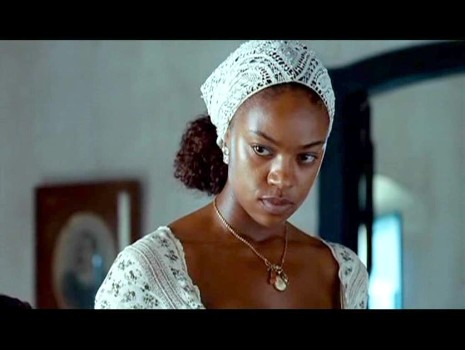
A www.blackhistorywalks.co.uk production
African Women Resistance Leaders : UK 1970's/80's
Friay 28 June 6.30pm to 9.00pm. This event will start at 6.30pm, latecomers will miss out and may not get a seat
Admission free if booked via eventbrite http://africanwomenresistanceleaders-eac2.eventbrite.co.uk/#. Donations accepted on the day
Check out our Queen Nzingha lectures here
https://www.youtube.com/blackhistorywalks
African Women Resistance Leaders. (UK 1970's/80's)
(Part of Black Power Sisters Weekend). In preparation for the Angela Davis film premiere on the 29 June, we present visual biographical details of black women from the UK and around the world who have resisted colonialism and racism . Women do not get the historical credit they deserve and quite often there is a focus on African Americans to the exclusion of local heroes. This event will give the audience video and documentary evidence of the who, what and why of 30 female fighters who used guns, pens or placards to fight for equallity in modern Britain. Bring notepad and pen and be on time, latecomers will end up standing . Women include: Queen Nzinga, Dora Akunyili, Dame Jocelyn Barrow, Olive Morris, Una Marson, Edna Ismail, Lieutentant Sanite Belair, Althea Gibson, Mavis Best, Fawzia Hashim, Dr Beryl Gilroy, Leyla Hussein,Gerlin Bean, Althea Lecointe, Stella Dadzie, Dr Patrica Bath, Professor Elizabeth Anionwu and many more
See our other exciting events at www.blackhistorywalks.co.uk )
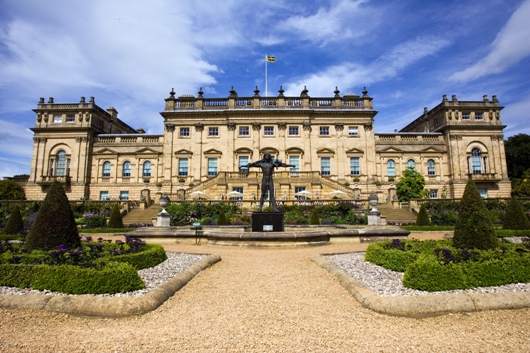
1834 Slavery Compensation: Who got the money ?
Sat 15 June 2pm to 6pm
This event is sponsored by Birkbeck, University of London, www.blackhistorywalks.co.uk, and www.nabss.org.uk
In 1834 when the British abolished slavery in the Caribbean the government paid 20 million pounds in compensation to the owners of the enslaved Africans. The Africans got nothing.
Many people have wondered who exactly got that money and what they did with it. Which islands and plantations benefited ? What houses were built ? What institutions were established ? What was the cultural and economic legacy of this massive payout ? Can it be identified and quantified ? A team of scholars from UCL have been researching exactly these questions and more. Over the last 3 years they have collated research on several thousand beneficiaries and created a searchable, user-friendly website that covers...
- Which individuals received monies.
- How much they received
- Which houses they lived in
- What they bought with the money
- Which cultural/ educational institutions they established or supported with the money
- What islands/plantations/ individuals in the Caribbean were compensated
- Exactly how banks and financial institutions used the money to further the needs of empire
- The role of slave-owners as writers and historians
- The connections between the compensation, finance companies and political parties
- Physical legacies; buildings, statues, parks, docks,railways, bridges, libraries
- How to use the website to expand your own personal or professional or genealogical research
Professor Catherine Hall, Dr Nick Draper, Keith McClelland, Kate Donnington and Rachel Lang will share their research, demonstrate how to use the website and take extended questions on both topics
Saturday 15 June 2pm to 6pm. This event will start at 2pm, latecomers will miss out and may not get a seat
Venue: Birkbeck University WC1 E 7HX (entrance on Torrington Square side), Tube Holborn/Russel Square,Tottenham Court Road click here for map and to book
Admission free only if booked via
If you wish to particpate in the live website demonstration please bring a laptop.
2pm Intro/ welcome
4.20pm Welcome back. Preview of 'Is there a case for Reparation' ? on 10 March
4.45 2nd set of speakers, specific individuals of note in London and how they used their compensation
The Slaveholders of London project http://www.ucl.ac.uk/lbs/project aims to develop the first systematic analysis of the extent and significance of slave-ownership in the formation of modern Britain. Drawing on the census of slave-owners in the British empire created by the Slave Compensation Commission in the 1830s to manage the distribution of the then enormous sum of £20m paid as compensation to slave-owners on the abolition of colonial slavery, the project will comprehensively document the people in nineteenth-century Britain who either owned slaves or otherwise benefited financially from slavery, and examine the different legacies of slave-ownership. A database Encyclopedia of British Slave-Owners will be created which will capture each of the several thousand slave-owners resident in Britain in the 1830s. It will be publicly accessible and act as hub for the local and regional efforts to show the linkages of communities in Britain to slavery.
The project will examine their roles and influence within British society in their lifetimes, and trace their major legacies after their deaths.
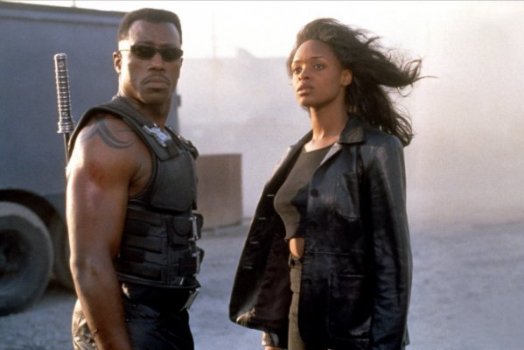
Sunday 7, 14 ,21 ,28 April at 3pm to 5.45pm
Cottons Caribbean Restaurant, 70 Exmouth Market, Islington EC1 .Tube: Angel
Pay on the door. £8.00 First come, first served.
Black History Walks is working with Cottons Caribbean Restaurant to showcase African/Caribbean history and promote excellent African/Caribbean food. Enjoy great movies, have stimulating debates and sample the delicious weekend buffet. So far we have exposed the black history of, and analysed Avatar, Matrix, and Planet of the Apes. We continue this Andrew Muhammad Movie Breakdown series with weekly Sunday sessions which will cover Blade, Django Unchained, Chronicle, X Men, Underworld and more. See dates below for films
Sunday 7 April Blade: Vampire Slayer: Part Two
Sunday 14 April Chronicle
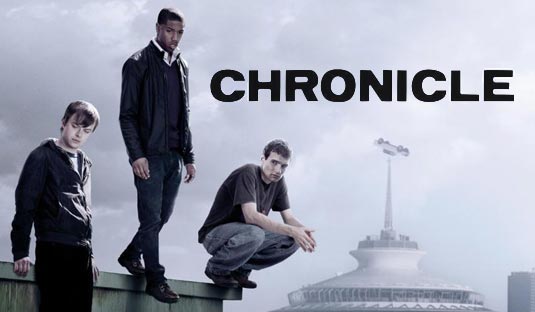
Sunday 21: They Live !

A number one hit when it came out in 1988. It was compared to the Terminator and Robocop. Apparently about aliens taking over the world by hijacking the TV, this film is FULL of black history. It also has one of the top 20 fight scenes in Hollywood history !
Sunday 28 April: Django Unchained or Tarantino Unresrtrained ?
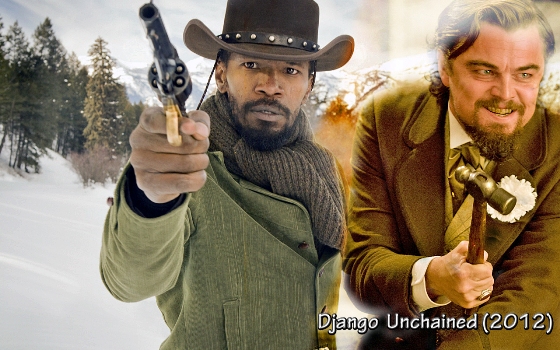
Django Unchained or Tarantino Unrestrained ?
Movie Breakdown with Dr Lez Henry and Brother Hakim
Entry: £8.00 adults, not suitable for under 16's Pay on the door, first come first served.
Loved and hated by some people we apply a forensic historical and cultural analysis of this controversial film adding in little known facts about the producers, actors and director to answer the following and more questions.
Is Django a symbol of black male empowerment ?
Why was this fictional film, with a majority black cast so welcomed by Hollywood while the true story of Red Tails, with a majority black cast, rejected and dismissed ?
What about the actual stories of rebellious slaves ? Do such movies exist ?
What obvious and hidden messages were in the film ?
Dr Lez Henry is an author, cultural critic and communit activist. Brother Hakim 'the Film Doctor', has been researching Hollywood films and presenting breakdowns for several years . Together these 'Street Surgeons' they will bring an unforgettable session of reasoning which includes you the audience. So bring your minds and make sure they are open
About the movie breakdowns...
The movie industry has perfected the art of using signs and symbols to convey many hidden truths to a very unsuspecting and susceptible audience. This type of communication was first invented in Kemet (Egypt) and was used throughout their society. Many Hollywood blockbuster films and cartoons such as The Matrix and Lion King contain secrets that will amaze the viewers. More info on Andrew Muhammad here
All movie Breakdowns led by Andrew Muhammad: The investigator Since 1994 Andrew has been conducting Hidden Truth Tours nationwide and internationally to Kemet (Egypt), Tunisia, Ireland and Spain. Andrew Muhammad has also designed what is widely known as the ‘Hidden Truth Movie Breakdown’. This delivery is based on the Chinese proverb that a picture paints a thousand words.. More info on Andrew Muhammad here
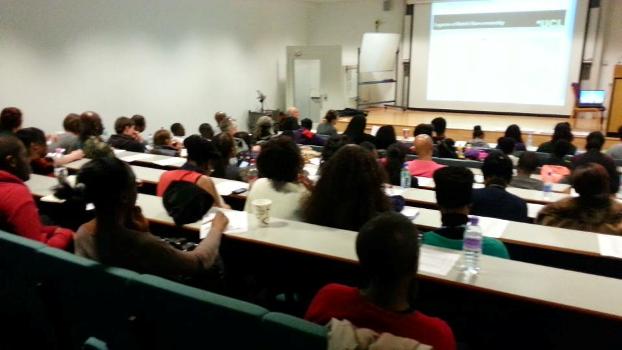
We are hosting a series of Queen Nzinga lectures, and other events, at Birbeck University of London. Below are the next three listings on Academia, Comedy and Resistance. All events are free but must be booked via www.eventbrite.com (just search for event title in London)
Queen Nzinga Lecture series 1 to 12
Queen Nzinga was an African Queen who fought against the European invasion of southern Africa (Congo/Angola). The Queen Nzinga lecture series will feature African female academics / holders of expert knowledge, speaking on topics of their choice on a monthly basis. The Nzinga lecture series will provide a regular platform for women of African descent to highlight important issues in an academic setting. The next lecture is Black Women in Academia Success, Secrets and Coping Strategies on Sat 23 March 6 to 9pm.This lecture is a continuation of the previously over-subscribed Black Women in Academia event where a desire for further talks was expressed as well as the need for a Black Women in Academia Support Group. Dr Michelle Asantewa will present an update on the group.
This lecture features two more African/Caribbean women who have achieved, or are on their way to achieving, Phd's. They will speak about their experiences in academia as well join an extended Q and A to expand on their revelations.
see sample of previous lecture here http://www.youtube.com/watch?v=zVXL8FACUYc
Speakers include:
Ekua Agha Phd Candidate at Birkbeck and a lecturer at College of North West London . Her first degree was in Political Science, she then did an MA in French and Francophone Studies at Westminster. Her doctoral thesis is on Post Colonial Studies and the representations of gender and the past and present 'invention' of Africa.She has previously worked as a researcher on the award-winning Law and Order TV series and is currently producing a documentary titled Chocolate Matters: Ghana Cocoa and British Bars
Veronica Mason, is a Senior Lecturer and the Degree Course Leader for the BSc Youth Studies Programme within the Faculty of Applied Social Sciences at London Metropolitan University. As a professionally qualified Youth and Community Worker with over 10 years youth work experience, she holds a MA Degree in Applied Anthropology, Community and Youth Work, a BSc Degree in Sociology and Psychology and a Post Graduate Certificate in Teaching in Higher Education. . Veronica has worked with a range of organisations including Havering’s Social Services and Youth Service, Tower Hamlets Youth Offending Team & Youth Service and the London East Connexions Partnership. held roles such as Deputy Manager, Project Co-ordinator, Senior Youth Worker and YISP Preventions Officer (YOT)
Dr Michelle Asantewa, is an English and Creative writing lecturer at London Met University. She has also curated several black history film events at the university and spoke on womens resistance in 18th century literature at the first Queen Nzinga Lecture last year.
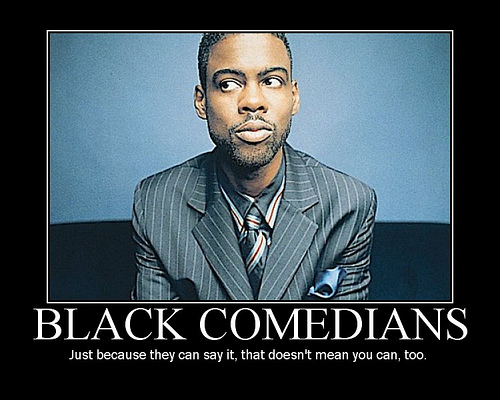
The Black History of Comedy Saturday April 6 at 7pm: Comedians often use history as part of their material. In this interactive session we piece together a visual tapestry of the best historical comedy from great known and unknown comics from the 1960's to now We will also place their comical observations on a historical timeline of international struggle for African equality and show how comedy can be educational. Be prepared to laugh your head off and learn about world history at the same time. Presented by www.blackhistorywalks.co.uk
In association with www.imagesofblackwomen.com we present the premiere of the multi award winning film.. Black Hands: The Sister who burned down Montreal on Sat April 20th 6.30 to 9pm
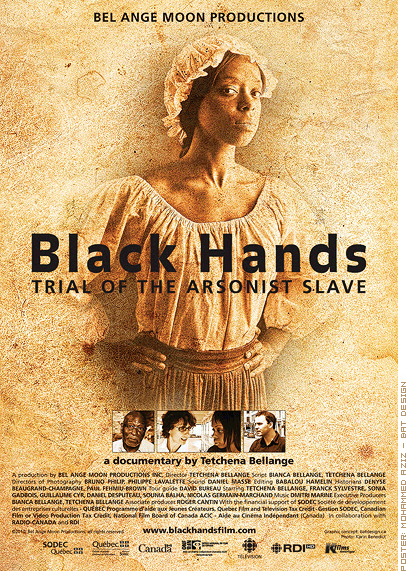
Black Hands - Trial of the Arsonist Slave" investigates slavery in Canada through the story of Marie-Josèphe Angélique, a Black slave accused of burning Montreal in 1734. After an epic trial, this untameable slave is tortured and sentenced to death. But was she really guilty of this crime or was she the victim of a bigger conspiracy? Why this voluntary amnesia about this unknown page of Canadian history?
A fascinating documentary that powerfully mixes interviews with historians and theatre re-enactments. Having its world premiere at the Montreal World Film Festival in the summer of 2010, the film is inspired by a play that was first presented in 2009, during the 275th anniversary of the Black slave Marie-Josèphe Angélique's execution. Tetchena Bellange, who portrayed Angelique in a play that she co-produced, was so touched by the story of this Black woman, she decided to explore the story further. Learning more about the history of Blacks in New France and about the woman who refused her slave status
Admission free but must book via Eventbrite www.eventbrite.com . Donations accepted
Click here for map http://www.bbk.ac.uk/downloads/centrallondon.pdf R
